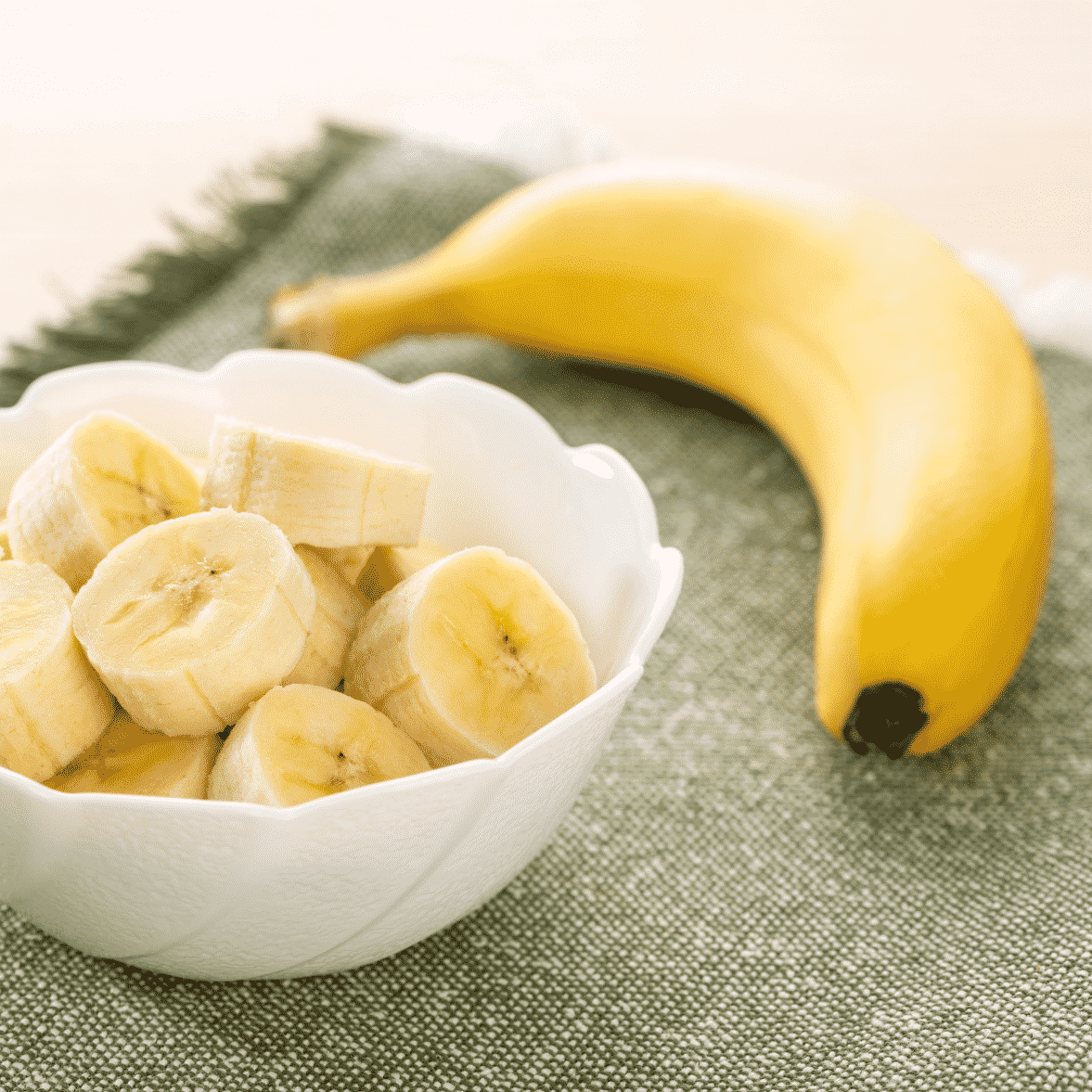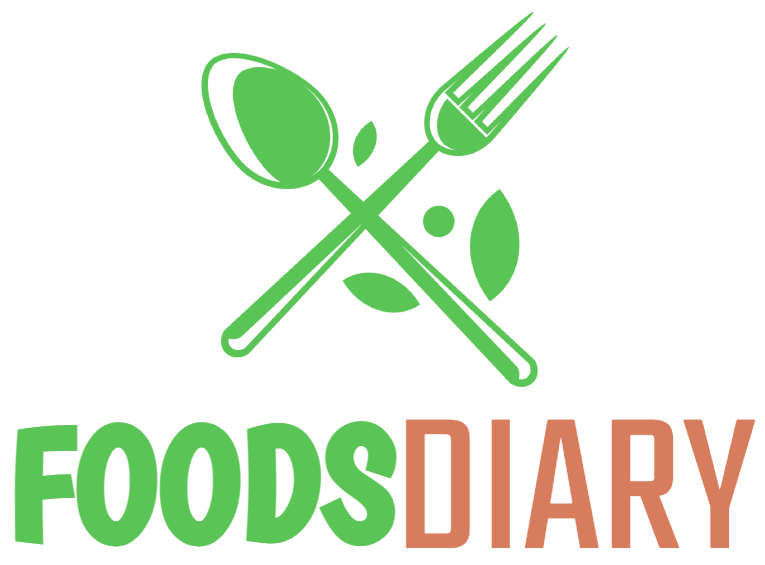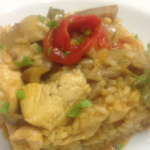The banana is very popular in Latin American cuisine, especially in the Caribbean, although it is a widely consumed food throughout the world. It is generally associated with delicious dishes, sweet and salty, not very dietary, and with its relationship with the banana. For these two reasons, the banana is considered inadvisable in slimming diets, but is it true or is it just another myth?

We invite you to discover together, if we should deprive ourselves of the exquisite flavor of the banana while we get rid of a few extra pounds. Read on to find out if bananas are fattening or not.
Banana Nutritional Value
Many are the people who confuse bananas with plantains. For this reason, it is important to first detail the differences between them. If we compare bananas and plantains in a general way, they produce very similar nutrients and compounds. However, the amounts vary and some other aspects. For example, both plantains and bananas are good providers of carbohydrates, but in bananas it is starches and in bananas it is more natural sugars (mainly glucose and fructose). Also, banana contains more sugar than plantain. To better illustrate it, here are the nutritional values of both:
Nutritional composition of banana per 100 grams
- Carbs: 20.8g
- Proteins: 1.06g
- Fiber: 2.55g
- Fat: 0.27g
- Sodium: 1mg
- Calcium: 7.3mg
- Iron: 0.59
- Magnesium: 0mg
- Phosphorus: 23 mg
- Potassium: 370mg
- Vitamin A: 0.04mg
- Vitamin B2: 0.07mg
- Vitamin B3: 0.98mg
- Vitamin C: 11.5mg
Nutritional composition of banana per 100 grams
- Carbs: 20g
- Protein: 1.2g
- Fiber: 3.4g
- Fat: 0.3g
- Sodium: 1mg
- Calcium: 9mg
- Iron: 0.6mg
- Magnesium: 38mg
- Phosphorus: 28mg
- Potassium: 350mg
- Vitamin A: 18mg
- Vitamin B6: 0.51mg
- Vitamin C: 10mg
Banana calories
After reviewing the nutritional composition of the banana, what we really want to know to determine whether the banana is fattening or not is the number of total calories. Well, 100 grams of bananas contain 95.03 calories. Of course, this amount corresponds to fresh fruit and at its right point of ripeness, so if we consume it riper the number will increase because it will have more sugars.
For its part, 100 grams of bananas contain 94 calories. As we can see, the caloric intake is practically the same in both varieties.
Banana benefits and properties
Plantains and bananas shine both in the culinary world and in the benefits they bring to the body. Its benefits are so many that we can fall short, but here we gather the most representative:
- It favors the control of blood pressure thanks to its high content of potassium and low sodium.
- Regulates cholesterol levels due to its great contribution of soluble fiber.
- Prevents and fights gout, arthritis and rheumatism thanks to its anti-inflammatory power.
- Improves the digestive system, protecting it from gastrointestinal pathologies. Both plantain and banana, whether green or ripe, are highly recommended for many types of digestive ailments (gastritis, ulcers, nausea, diarrhea, etc.).
- Prevents and helps treat ulcers. Using banana flour as an internal healer for ulcers is a very common natural medicine in India, since the leukocyanidin it contains reduces inflammation of the digestive system and protects its mucosa.
- Relieves insect bites. Banana and plantain peels serve as a natural remedy against insect bites thanks to their sugars, which help remove liquid from the bite. For this remedy you only need to rub the inside of the shell in the affected area.
- Promotes healing of wounds or burns. Applied as a topical solution, both bananas and plantains can accelerate the healing process of this type of injury, without causing any complications.
- Relieves heartburn or heartburn. The banana is very effective against acidity, since it works as a gastric envelope.
- Reduces the acidity of the blood. Bananas are very alkaline, which increases these reserves in the body and prevents acidity in the blood (acidosis).
- It can help prevent cancer. Thanks to its abundant antioxidants and its anti-inflammatory power, bananas, accompanied by a diet rich in vegetables and other fruits, can help prevent different types of cancer, especially colorectal cancer, according to studies carried out by Dr. Lopez Fare.
- It combats constipationthanks to its high fiber content, its contributions in fructooligosaccharides and because it is a low-FODMAP food.
- Prevents and controls anemia. Bananas and bananas stimulate the production of hemoglobin, for which their consumption is very convenient in cases of anemia. Check this other article with juices: “Juices for anemia “.
- Helps fight nephritis and kidney stones. Due to its low amount of sodium and its large amount of potassium, it prevents fluid retention and edema formation.
- It recovers the body from fatigueand increases its resistance capacity because it provides abundant immediate energy. This happens thanks to the combination of carbohydrates and potassium, both essential for muscle activity. In addition, it provides vitamins of group B, which contribute to the production of energy in cells.
- Prevents cramps and restores mineral salts. The banana is rich in potassium and magnesium, which quickly restores the minerals lost during sweating.
Are bananas fattening?
Surely you have heard a widespread myth about the banana and all its varieties about its incompatibility with slimming diets. However, this very widespread belief is supported, in large part, by justifying itself in the number of calories it provides. What daily if we told you that this is false? Here are the reasons for this statement:
- Yes, a large banana provides 95 calories per 100 grams. Therefore, by consuming a small one, you will considerably reduce the number of calories.
- Banana calories are nutrient backed, meaning they are not empty calories.
- The behavior of nutrients and compounds in the body matters. Although two foods can provide a large percentage of calories, if the components of one of them cause favorable processes for weight loss, the calories of this lose relevance.
- The banana provides complex carbohydrates, especially retrograde starch, a type of starch that behaves like fiber, since it is not assailable by the body. Fiber helps control glucose levels in the body and cholesterol, both of which are very beneficial for losing weight.
- This fruit does not contain fat.
- Produces satietythanks to starches and fiber.
In conclusion, the banana is excellent for losing weight if you consume it moderately and if you prepare it in the right way for these cases. So, how to eat banana so as not to gain weight? Very simple, raw! The best way to eat fruits and benefit from all their benefits is whole and fresh, without crushing and without cooking. Now, if you like to cook the banana, it is best to cook the banana in the oven.
Are bananas fattening at night?
Another widespread myth about bananas refers to whether or not you get fat at night. As with other fruits, it is not really about making us fatter more or less during the day or at night, the time we eat these foods does not affect us at all, it affects how long it takes us to go to sleep afterwards. That is, as bedtime approaches, we reduce our physical activities significantly; therefore, the burning of calories is also reduced. What does this mean? That if you consume some fruit or high-energy food and do not burn it, you will store those calories as fat.
However, although the banana is an energy-rich fruit, its use can be prolonged during the night hours. Why? Because it contains tryptophan that promotes sleep and contributes to the growth of muscles during night rest. That is to say, if you consume it moderately, the banana does not make you fat, on the contrary, it can benefit you a lot, even in weight loss and muscle development.
For more details, see this article: “Is it good to eat fruit at night? “.
And the banana makes you fat?
Who has not heard that bananas make you fat? The truth is that it is another of the food myths and then we will reveal why the banana does not make you fat:
- The starch it contains promotes weight loss, as it lowers glucose levels and reduces blood lipids, favoring people with obesity and metabolic syndrome.
- Its calorie content is proportional to the nutrients it provides. The calories it provides you are not empty calories, but full of nutrients that favor your body.
- The amount of calories is not relevant, if you do not consider the reaction of nutrients in the body. More important than the caloric load it is how certain foods react in the body.
- Contains few calories. A large banana contains between 85-110 calories, however, a medium banana contains 82 calories and a small one 54 calories, approximately. If you consume a medium or small banana, you will consume few calories and in return you will receive important nutrients.
- Produces a satiety effect. Because of its high fiber content, it creates a feeling of fullness.
- A healthy treat for the diet. This fruit provides a sweet yet healthy alternative for anyone on a diet, especially if it is very strict.
- Improves your mooddue to tryptophan.
- Provides a lot of energy. The high percentage of potassium and magnesium in this fruit make it an excellent source of healthy and quick energy.
- Controls cholesterol levelsdue to its high content of dietary fiber.
- Regulates intestinal transitthanks to pectin and soluble fiber.
How is the banana diet?
Now that you know that bananas are not fattening, what would you think if we told you that eating bananas will make you lose weight in just 4 days? Amazing, right? Well, this is the banana diet, a proposal that went viral on the networks. However, this “miraculous” diet is not preferred by nutritionists, who claim that it does not meet the requirements of a healthy diet. This is so because a healthy and balanced diet must be made up of varied foods belonging to different groups.
What do you think? Would you try to do it? For you to draw your own conclusions, we share a banana diet menu with more ingredients than this:
- Breakfast: 1 banana with 1 glass of warm water (you can also have tea without milk or sugar). According to its creator, this stimulates the metabolism to eliminate toxins from the body, naturally.
- Mid-morning: you can consume banana or other fruit.
- Lunch: salad and rice.
- Snack: you can consume banana or other fruit.
- Dinner: early and light, around 8:00 pm. A suggested dish for this time is vegetables and turkey; it also serves chicken or fish, but always roasted or grilled. You can consult the recipe for grilled chicken.
What are the main restrictions of the banana diet?
- Avoid the consumption of wine, milk, alcohol, desserts, sweets and fried foods.
- Consume only foods such as bananas, fruits, lean meats, white fish, rice and vegetables.
- Take a daily walk (no other strenuous exercise required).
- Eat only fruit between meals.
- Drink plenty of water daily.
- Eat moderate portions at lunch and dinner.



